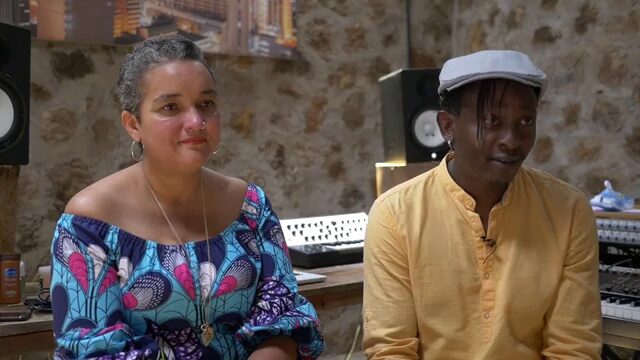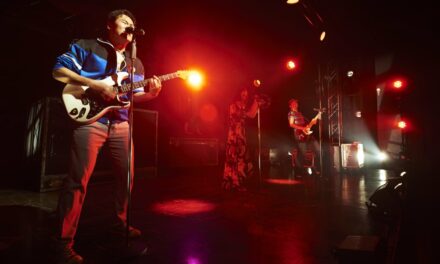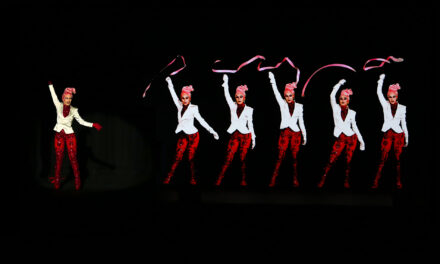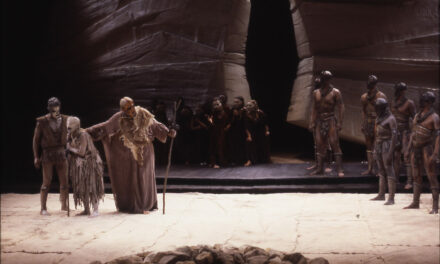There are some lyrics in Simon & Garfunkel’s The Dangling Conversation that really get to me: ‘Can analysis be worthwhile? / Is the theatre really dead?’ I think about the theatre a lot because I’m involved with it, mostly in a writing capacity. With so many distractions and forms of entertainment in the world today, many thespians have mulled over the health of live theatre worldwide. And yet, there’s always a glimmer of hope. Even the technology that could potentially bury theatre has been used by innovative creative’s to breathe more life into it. For example, there are apps like A Taste of Theater, that (among other things) can help tourists detect theatrical activity in their geographical area! When the coronavirus pandemic hit, it seemed like the death of live theatre (and big-screen film viewing). But no. In Kenya, for example, not only did theatre groups continue working on new material but some resulted to presenting shows live on Instagram and other online platforms. Another piece of innovative theatre that has taken place with Kenyan participation is the world premiere of Theatre For One: We are Here (Nairobi Edition).
THE SHOWS
Theatre For One: We are Here comprised of six commissioned plays, each less than ten minutes in length. For each ticket booked, an audience member was invited to experience one of the following performances, selected at random:
- The Interview: written and performed by Aleya Kassam; directed by Esther Kamba; mentored by Kholoud/SRĐA
- The Living Ghost: written and performed by Mercy Mutisya; directed by Kholoud Sawaf; associate director, Nyokabi Macharia
- Aging: written and performed by Laura Ekumbo; directed by SRĐA; associate director, Esther Kamba
- The Beanie: written and performed by Mūmbi Kaigwa (documentary theater); directed by: SRĐA; associate director, Nyokabi Macharia
- Killer Cop Lives Fast Life: written and performed by Sitawa Namwalie; directed by Kholoud Sawaf; associate director, Esther Kamba
- Cucu: written and performed by Anne Moraa; directed by Nyokabi Macharia, mentored by Kholoud Sawaf/SRĐA
The shows were staged in Abu Dhabi (United Arab Emirates), Nairobi (Kenya) and New York (USA).
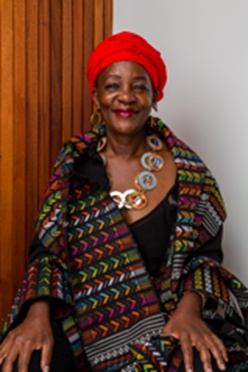
Sitawa Namwalie is an award-winning Kenyan poet, playwright and performer. (Credit: Media photo).
A PARTICULARLY INTIMIDATING THING
Speaking at the Zoom-telecast press conference on August 31, 2021, Christine Jones, the Creator and Artistic Director of Theatre for One, said:
‘During the pandemic, we were invited by Arts Brookfield to create an online version of the work we’ve been doing, which was something we have always resisted. But during this time, it felt – as a global community – that these experiences through the Internet were live. And this made it more appealing to us to experiment in this form. We wanted to make sure that the relationship continued to be one-one, continued to be live, and that it continued to be within a bespoke space…And we are incredibly excited to be working with NYU Abu Dhabi, Karishma (Bhagani) and the organizations in Nairobi to bring this work to you now.’
But how does having an audience of one feel? Surely, thespian prefer performing to packed houses (whenever possible). One of the contributors to the project, Kenyan musician Eric Wainaina:
‘We’ve played in front of large audiences before. But I think playing in front of an individual, you know, is a particularly intimidating thing. And a particularly wonderful experience. The actors from our end who are going to be presenting here at Theatre For One, it’s a challenge that they have accepted. And I take my hat off to them.’
CROSSING BORDERS
Eric Wainaina was originally known a band member of a group known as Five Alive, who went solo and became the country’s best-known Afro-fusion singer. However, in recent years, he has also built a reputation as a social commentator and thespian. His contribution to contemporary Kenyan musical theatre is so tangible that trying to discuss that scene without mentioning him would be like describing the Kenyatta International Conference Centre without mentioning the statue of Mzee Jomo Kenyatta. An alumnus of the Sundance Institute Theatre Program East Africa Initiative, Wainaina premiered a 21-song musical theatre piece titled Lwanda, Man of Stone, based on a local Greek-epic-like folk tale. It was staged at the GoDown Arts Centre, Nairobi, in December 2006. It toured nationally in 2007 and 2008, playing a total of 52 shows. Renamed, Mo Faya, the show played at the New York Musical Theatre Festival in 2009. Regarding this new, cross-border digitally-enhanced initiative, Eric said:
‘The pandemic did interesting things for creativity, forcing us to sequester ourselves and finish works that we hadn’t yet finished. It gave us an opportunity to really hanker down. We’re glad that some of the writers we have been working with a gonna present some of their material here, at Theatre For One.
Sheba Hirst, the co-owner and Managing Director of Rainmaker Productions, added:
‘I think it was also a really important time for cross-border collaborations, of which this is a really interesting example. It’s really an opportunity for us, as Kenyans, to share with the rest of the world. And what an interesting format to do it in.’
BEHIND THE SCENES
Christine Jones (Creator/Artistic Director) is a Tony and Olivier award-winner. She directed the immersive nightclub dining experience, Queen of the Night, which won a Drama Desk for Unique Theatrical Experience. Her award-winning scenography has been seen on Broadway and in the original London productions of Harry Potter and the Cursed Child, as well as in the Broadway musical, American Idiot. She gave a brief history of the ‘audiencer’ (single theatre audience) concept:
‘Theatre for One began as a project almost twenty years ago. And it started as an exploration and an experiment to see what would happen if we distilled the relationship between the actor and the audience member to a one-one-one interaction. And what we discovered was that this relationship equalizes the role of the actor and the audience member…This mutual interdependence on each other creates a fertile and heightened environment within which to witness and to experience works of theatre.’
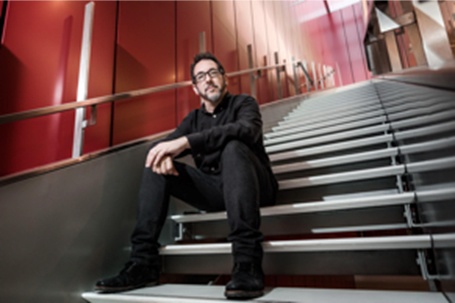
Bill Bragin is the founding executive artistic director of The Arts Center at NYU Abu Dhabi (Credit: Media photo)
Bill Bragin, the Executive Artistic Director at The Arts Center at NYU Abu Dhabi, had this to say:
‘We are delighted to announce the return of Theatre for One to The Arts Center. This unique digital platform gives us a way to cross borders and deepen The Arts Center’s ties with the Kenyan theater community, building on the UAE’s strong links with East Africa. Working with the Nairobi Musical Theatre Initiative and Rainmaker Limited, together with Octopus Theatricals, has proved to be a fruitful collaboration that expands the cross-border dimensions of The Arts Center’s work further than ever. Rather than looking at the obstacles that the performing arts are currently facing, this project is a great example of creative ingenuity, using technology to advance the work of the field globally. We’re especially excited to have a transnational creative and production team, all working together to share their unique knowledge and experience.’

Karishma Bhagani is a graduate of NYU’s Tisch School of the Arts and currently serves as the associate producing director of the Nairobi Musical Theatre Initiative. (Credit: Media Photo).
Karishma Bhagani, the Creative Producer for Theatre for One Nairobi Edition, was clearly excited about the project. She said:
‘It is an honour to help bring the Nairobi edition of Theatre for One to life. Having been born and raised in Mombasa, Kenya, and as a graduate of New York University’s Tisch School of the Arts, I have always had a keen interest in expanding performance opportunities and the arts sector within East Africa. To do this in conjunction with NYUAD is a dream opportunity that draws together these varied influences. Theatre For One elevates a vibrant chorus of voices that are deeply resonant nationally and internationally, and creates deeply personal works that resonate in this shared moment.’
RE-IMAGINING THEATRE
Again, Bill Bragin:
‘When COVID-19 hit, the Arts Centre – like all performing arts centres – had to re-imagine its purpose. It’s all too easy to succumb to the grief that comes with knowing how much we lost. We made a decision that, rather than focus on the constraints resulting from the global pandemic, we would focus on the opportunities to rethink our work and re-invent how we keep the performing arts at the centre of our collective experience, both at NYU Abu Dhabi and in the larger global community…We decided to invest in new forms of theatre-making: online, over the phone, with 3-D immersive audio, and other ways.’
Given the myriad innovations and re-inventions that have taken place over the centuries, I think it’s safe to say that live theatre – one of humanities oldest arts forms – is unlikely do vanish anytime soon. To answer Simon & Garfunkel’s question in The Dangling Conversation: Yes, analysis is worthwhile…’cause theatre ain’t dead.
This post was written by the author in their personal capacity.The opinions expressed in this article are the author’s own and do not reflect the view of The Theatre Times, their staff or collaborators.
This post was written by Alexander Nderitu.
The views expressed here belong to the author and do not necessarily reflect our views and opinions.

